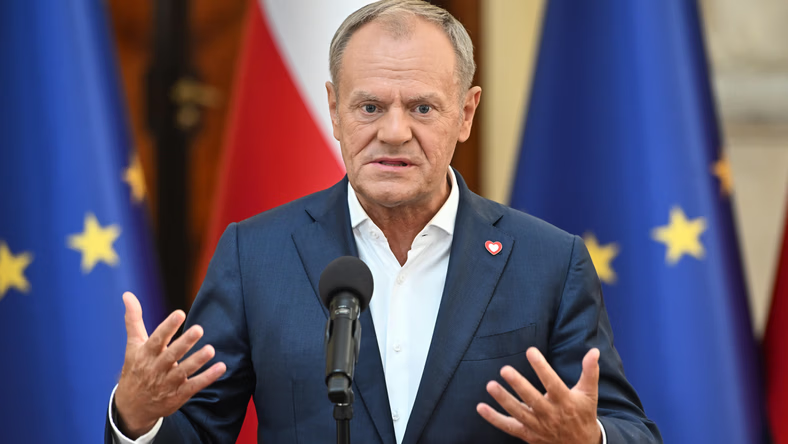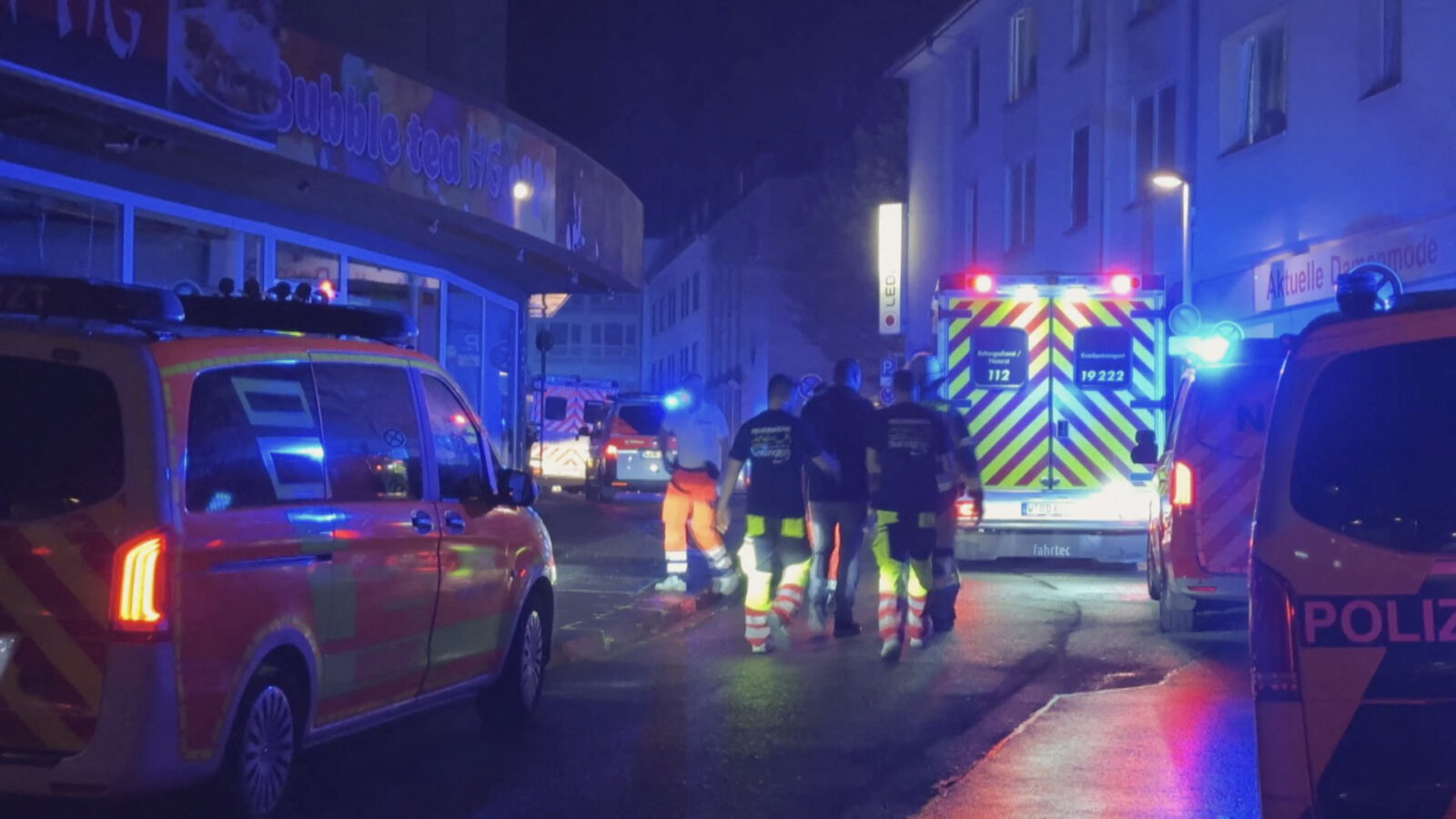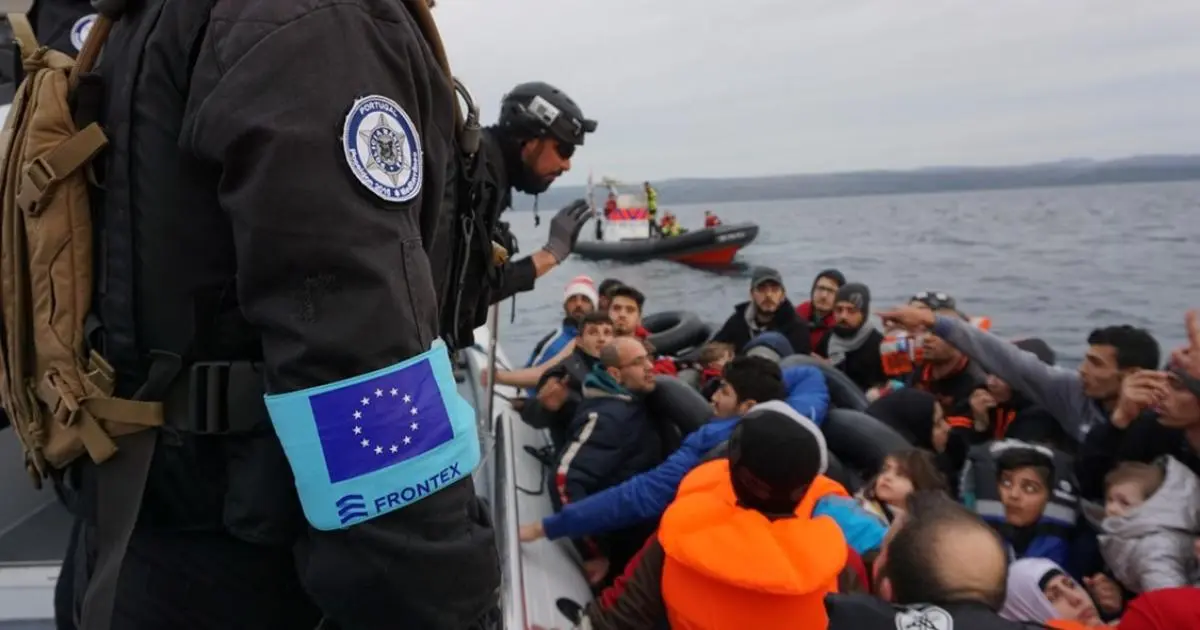End of Schengen? Germany’s extended border control faces criticism
 A German federal police officer stops cars and trucks at a border crossing point between Germany and Czech Republic in Furth am Wald, Germany, Tuesday, Oct. 10, 2023. (AP Photo)
A German federal police officer stops cars and trucks at a border crossing point between Germany and Czech Republic in Furth am Wald, Germany, Tuesday, Oct. 10, 2023. (AP Photo)
Polish Prime Minister Donald Tusk has denounced Germany’s decision to extend temporary border controls at all its land borders, labeling it “unacceptable” and a violation of the Schengen Agreement.
‘This type of action is unacceptable’
The move is part of Germany’s broader strategy to address rising concerns over irregular migration, but neighboring countries have expressed frustration over the impact on free movement within the Schengen zone.
Tusk, speaking to Polish diplomats in Warsaw, expressed his discontent with Germany’s decision, adding that Poland would seek urgent consultations with other affected countries. “From the Polish point of view, this type of action is unacceptable,” Tusk said. “We will reach out to other countries affected by Berlin’s decision for urgent consultations on how to act on the EU forum on this issue.”

Germany extends controls to counter irregular migration
Germany’s Interior Minister Nancy Faeser announced that the country will temporarily extend border controls to its land borders with France, Luxembourg, the Netherlands, Belgium and Denmark. These controls will complement existing measures at the Polish, Swiss, Czech, and Austrian borders. Faeser defended the expanded checks as necessary to address “acute dangers posed by terrorism and serious crime,” and to curb irregular migration flows.
“We want to continue to push back irregular migration,” Faeser said. The border controls will begin on Sept. 16 and initially last for six months.
The move comes amid rising political pressure on Germany’s three-party coalition government, which has been facing setbacks in recent state elections where immigration was a major issue. Opposition parties, particularly the far-right Alternative for Germany (AfD), have surged in popularity, prompting the government to act on immigration control.

Germany’s new security package
Combating irregular migration
- In the future, the Federal Office for Migration and Refugees will be allowed to use biometric data to establish the identity of people seeking protection.
- People seeking protection for whom another European country is responsible under the Dublin Regulation will no longer receive social benefits in the future if the responsible member state has agreed to readmission.
- A “Dublin task force of the federal and state governments” will ensure that more people seeking protection who are already registered in another EU country can be transferred to the responsible state.
- Travel to the country of origin that is not necessary will result in the withdrawal of protection status.

Combating terrorism
- Biometric matching for facial recognition will be possible to facilitate the identification of suspects.
- In order to better combat terrorist financing and control money flows, the Office for the Protection of the Constitution is given additional powers.
- During its time in office, the German government has imposed several bans on religious associations – further bans will follow.
- Extremists must not be allowed to possess weapons, which is why other authorities – such as the Federal Police, Federal Criminal Police Office and the Customs Criminal Police Office – will be consulted in the future when it comes to granting or withdrawing weapons licenses.
- The Federal Government is setting up a task force on the prevention of religion made up of academics and practitioners.
- The Federal Government will call on the EU to better combat religion-based terrorism propaganda online.
Stricter gun laws and ban on knives
- The Federal Government will introduce an absolute ban on knives at public festivals, sporting events, trade fairs, exhibitions, markets and other public events.
- Knives will also be banned on buses and trains in the future.
- The federal states will be authorized to impose knife bans at train stations.
- The use of dangerous switchblade knives will also be prohibited.

Neighboring countries to Germany react with criticism
Poland was not alone in its criticism of Germany’s extended border checks. Austria’s Interior Minister Gerhard Karner stressed that Austria would not accept any individuals turned away by Germany, stating there was “no room for maneuver.” Karner emphasized that more robust external border control measures were the solution, not temporary internal checks.
Dutch authorities also criticized Germany’s move, with a transport group accusing Berlin of undermining the Schengen Agreement, which allows free travel within member countries. Raquel García Hermida-van der Walle, a Dutch MEP, warned that “one of our most important freedoms is being jeopardized to send a political signal.”
However, not all neighboring countries took issue with the plan. Czech Interior Minister Vit Rakusan noted that the controls were not a direct threat to Czech citizens and were simply an extension of existing measures at the German border.
As for the current report on controls at the German border, this is an extension of the current measures that have been in place at the German border for several months. This does not mean any fundamental change for the Czech Republic and its citizens at the moment. According to my information, random checks will continue.
Vít Rakušan

Political pressure in Germany
The extended border controls come in the context of rising political tensions within Germany. In recent state elections, the far-right Alternative for Germany (AfD) came first in Thuringia, signaling growing discontent over immigration issues. The governing coalition, led by Chancellor Olaf Scholz, has been under pressure to respond more firmly to concerns over migration.
Conservative leaders in Germany, however, believe the government’s measures do not go far enough. Friedrich Merz, leader of the opposition CDU, accused the government of being divided and unable to agree on effective actions.



